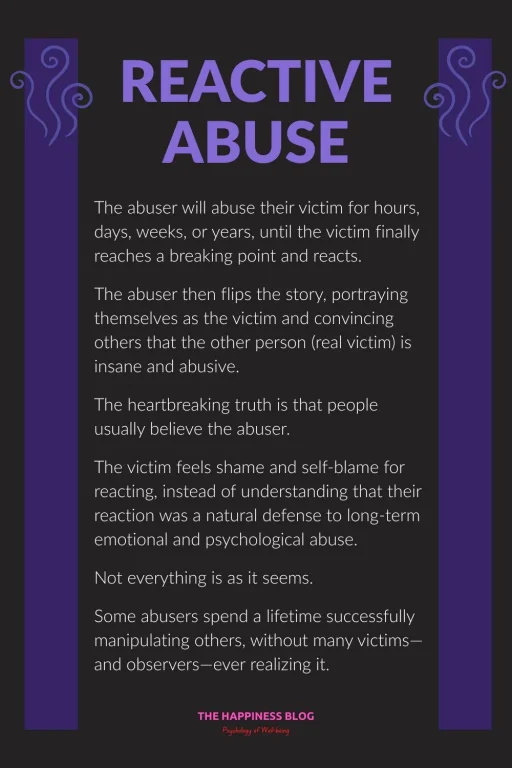Today's Saturday • 7 mins read
— By Dr. Sandip Roy.
Your narcissist first realizes they’re losing control when you block out their gaslighting.
They spent months or years confining you in the relationship, tutoring you to become their source of validation.
Your decision to go “free” now threatens to destroy their carefully crafted phony image. It triggers fear and shame.
Narcissists rely on control to maintain their fragile self-worth. When that control slips, they experience a primal sense of panic, fueling reactions that range from denial to full-blown rage.
The six types of narcissists respond in different ways. From passive manipulation to silent contempt to full campaigns of hostile behavior. All to make you surrender control again.
How Narcissists React When They Can’t Control You
Three main reactions emerge when narcissists lose control:
- Frustration: The initial shock of losing their puppet
- Hesitation: The uncertain period of trying to regain power
- Aggression: The escalation when other tactics fail
What truly disturbs them is the fear of losing their narcissistic supply, and the shame is of possible public exposure.
The following patterns show how narcissists react when their control slips away.

1. They target you with narcissistic rage.
After that initial shock, narcissists launch verbal outbursts and sometimes physical roughness. They yell, throw things, and call you names.
It’s like a tyrant venting at someone for defying their rules. Your independence feels like an insult to their inflated self-importance. This explosive response has a name: narcissistic rage.
The purpose is simple: intimidate you back into submission and get back control of you. When private insults fail, they escalate to public humiliation. They expose:
- Personal secrets you shared in confidence
- Your weaknesses and vulnerabilities
- Private photos or conversations
- Past mistakes or legal issues
They can contact your employers, friends, or even the authorities to inform them of your past offenses.
The goal is to make your independence so painful that returning to their control seems easier.
2. They use the silent treatment.
Narcissists switch tactics when rage fails. They start to treat you as if you’ve become invisible.
All communication stops. They act as if you no longer exist. This creates overwhelming guilt that makes you question your decision to stand up for yourself.
They remain physically present but emotionally absent. They answer nothing. They will have stony expressions, with occasional glimpses of disapproval.
This wicked strategy works best when they’ve isolated you from support networks.
With no family or friends to turn to, your loneliness becomes unbearable. It forces you to consider going back to them for a human connection.
The message is clear: your independence has consequences.
For a hurt narcissist, this calculated silence is a tool to make you hand over your reins back to them.
The next one takes it a step further.
3. They will disappear without warning.
Narcissists will abruptly vanish from your life without notice or explanation.
They get out of your reach, stop answering calls, ignore messages, and disappear from every place you can think of finding them. This behavior, called ghosting, is a humiliating rejection tactic.
Ghosting is when someone stops all contact without explaining why. It is how conflict-avoidant people break up. Avoidants ghost to avoid the punishing demands of conflict resolution.
But covert narcissists ghost to punish you out of their passive-aggressive nature. Since they don’t show direct anger, ghosting is how they vent their frustration on you.
They want you to feel confused and tormented about what you did wrong and whether the relationship is breaking up.
Narcissists very well understand the pain that comes from a lack of “psychological closure.” They know you will beg them to return and clarify the relationship status.
Of course, you understand that they are upset. But one question torments you: what did you do to offend them so badly?
4. They launch smear campaigns against you.
Narcissists start smear campaigns when they suspect you might expose their true nature to others.
They spread rumors to protect their public image.
Their defaming efforts often work. They can convince people of the “evil” things you did to them. Those people may start to question your claims that the narcissist abused you.
Then, they may deploy “Flying Monkeys.” These are people who act on behalf of narcissists to expand the reach of their smear campaign against you. These allies might openly slander your character and insult you in public.
Smear campaigns give narcissists a sense of control, as they are actively luring a mob to target you. It lets them control the narrative, position themselves as the “real” victim, and label you as the “villain.”
Their smear campaigns can damage your credibility among friends, family, children, coworkers, and even legal authorities. They might anonymously reveal dark parts of your personal life.
Their goal: convince everyone you’re unstable, unpredictable, and abusive.
You might suddenly find yourself unable to secure loans because people believe you’re mentally and financially unreliable.
5. They stalk and look for ways to initiate confrontations.
Narcissists prowl and stalk you, online and offline.
You might be surprised to see them at many places you visit. If they can’t enter a private event, they may lurk outside.
Their main goal is to plant a seed of unpredictable fear in your mind. You never know when or where they’ll appear. This is what stalkers do.
Don’t mistake their stalking you as love. It’s a threat. They’re watching for a chance to cause harm.
Tell authorities immediately if you notice stalking behavior from your narcissist. Don’t wait because you think they won’t hurt you. They can.
They are perfectly capable of designing an accident for you. Some may even imagine a “perfect way to get someone out of the picture.”

6. They Bait And Provoke You To React.
Narcissists know exactly how to make you feel worse. They know which buttons to push to instantly upset you and trigger you into a nasty reaction.
During your relationship, they studied you closely, taking mental notes. They noted your flaws and weak points. Now that you are out of their control, they use this knowledge against you.
They excel at this. When you respond with an outburst or a breakdown, they will have “proven” you’re unstable and untrustworthy.
Worse, they can use your reaction to flip the script. Now, you are the villain, and they, the victim.
7. They start love-bombing to win you back.
When narcissists lose control, they return to the tactic that first trapped you: re-love-bombing, also known as hoovering.
They start showering you with attention, gifts, and compliments.
Since they have already seduced you before, this sudden flood of affection becomes hard to resist.
They promise to change, asking your forgiveness for the hurt they gave you. Their “I’ll be different this time” and “I’ve learned my lesson” sound genuinely soaked in regret.
They bring back happy memories to trigger your soft side. Some switch between sweet talk and subtle guilt trips. “You misunderstood me,” and “You’re too sensitive.”
This mix of praise, promises, and pity shuts down your rational mind. Your judgment clouds, and you question your decision to leave.
All of this drama serves one purpose: getting you back under their control.
Final Words
When narcissists feel they cannot control you, they will go into a rage and do anything to get you back under their control.
One extreme strategy in their arsenal in this regard is their ability to hurt themselves to hurt or implicate you.
Narcissistic revenge can take the form of malicious narcissism. It is a type of pathological narcissism in which they make it their life mission to bring down their victim at any cost.
√ Also Read: How Narcissists Isolate You From Loved Ones: Coercive Control
√ Please share this with someone.
» You deserve happiness! Choosing therapy could be your best decision.
...
• Disclosure: Buying via our links earns us a small commission.

